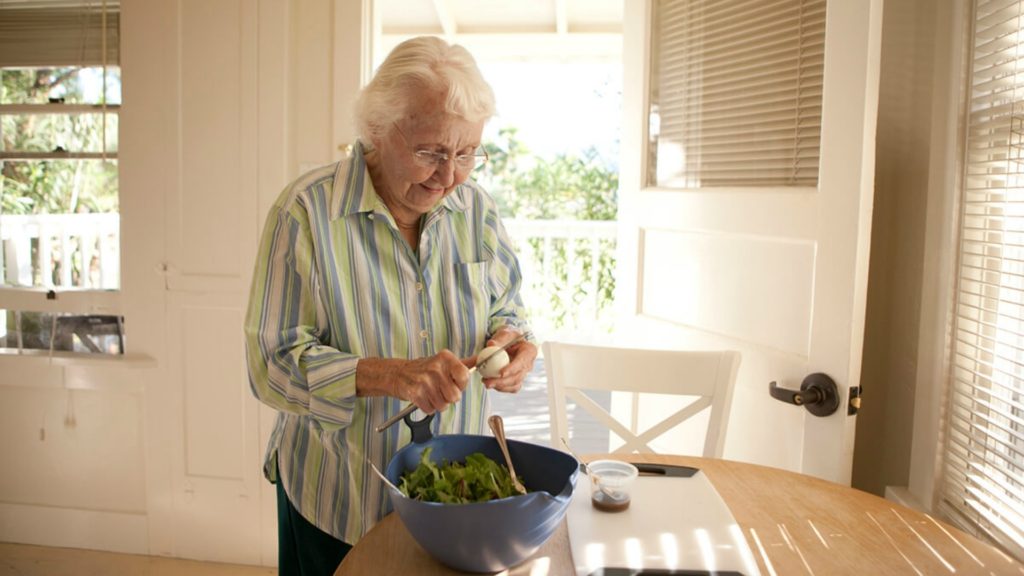

This article originally appeared on Next Avenue.
An Influencer in Aging on better housing for older Americans
(Next Avenue invited all our 2016 Influencers in Aging to write essays about the one thing they would like to change about aging. This is one of the essays.)
The election is over. Happy or not, we can’t predict what the new administration will do. But two things are certain. First, aging issues won’t disappear. Second, we can’t expect more federal funding or new entitlements. But this could be a good thing if it pushes us to think out of the box, particularly regarding aging in place.
What Out of the Box Means for Aging in Place
What do I mean by “out of the box?” I mean focusing on the situation facing middle-income older Americans.
While low-income older adults desperately need funding and support, 70 percent of older Americans (70 million people) do not qualify for government or not-for-profit programs but, at the same time, cannot afford expensive retirement communities or 24/7 care. These people have some resources and most want to age in place. Many own their homes and spend out-of-pocket for care, which is often difficult to locate and manage.
70 million older Americans do not qualify for government or not-for-profit programs but cannot afford expensive retirement communities or 24/7 care.
Without question, this is a cadre that needs better supports.
Out of the box is preparing homes in advance so health costs are avoided or reduced in the future. An age-friendly home helps people stay healthy longer, which reduces costs for health payers and for families. Falls are reduced. And people who do fall can return to a prepared home more quickly, saving rehab costs and improving recovery.
When a home is prepared for aging in place, family and informal and paid caregivers there are injured less frequently. That means available resources go farther.
What Business and Government Could Do
Out of the box is also looking to private investment and business to generate solutions for housing and providing services to older citizens.
Increased sales of age-friendly products would mean new jobs and training to manufacture and install the kinds of products that would transform American housing into homes to age in place.
Out of the box is applying the service and delivery innovations, efficiencies and economies that emerge in privately-financed age-friendly homes to all incomes and payers. Higher concentrations of age-friendly homes will be fertile ground for a robust consumer-driven marketplace where all types of service providers can innovate, integrate and scale economically. This is an innovation and opportunity zone.
Increased government spending was probably not in the cards no matter who was next in the Oval Office. So shifting to incentivized private investment is a good strategy in today’s political climate. Incentivizing age-friendly home updates amounts to a privately- financed demonstration project. The results will be far reaching, crossing lines of business as well as government silos. What’s learned will improve the aging experience for less affluent citizens as well.
Out of the box is about government incentives for consumers to age in place, too. Just as incentives helped the solar industry take off like a rocket, government incentives could make it less expensive to update homes using age-friendly improvements.
Government incentives can leverage private retirement savings as well. For example, why not allow the use of a portion of 401(k), IRA and other health and retirement savings — without tax or penalty — to purchase appropriate technology and building products for age-friendly home updates?
Success Comes From Interdependence
Out of the box is recognizing that success really comes from interdependence. Though we idealize independence, the reality is that family, neighborhoods, community, services and networks are the foundation underlying individual success at every age — including healthier, dignified and economical aging.
Community supports are necessary resources for self-reliance.
The Power of Consumers
And out of the box is engaging consumers to consolidate their political and market power.
Legislators will pay attention to a coordinated campaign from (mostly older) consumers. Awakening consumers to the strength in their numbers, experience and shared goals is a different message than cajoling them to avoid frailty, be fearful of falling and reduce the burden on their loved ones. Acting from strength encourages self-reliance.
HomesRenewed™, the coalition of business, consumer and nonprofit stakeholders that I founded, has a goal of enabling the 70 million boomers to follow their desire to age in place. Together, we can drive policy and investment, unlocking market-based solutions to increase the number of age-friendly homes.
© Twin Cities Public Television - 2017. All rights reserved.
Read Next



